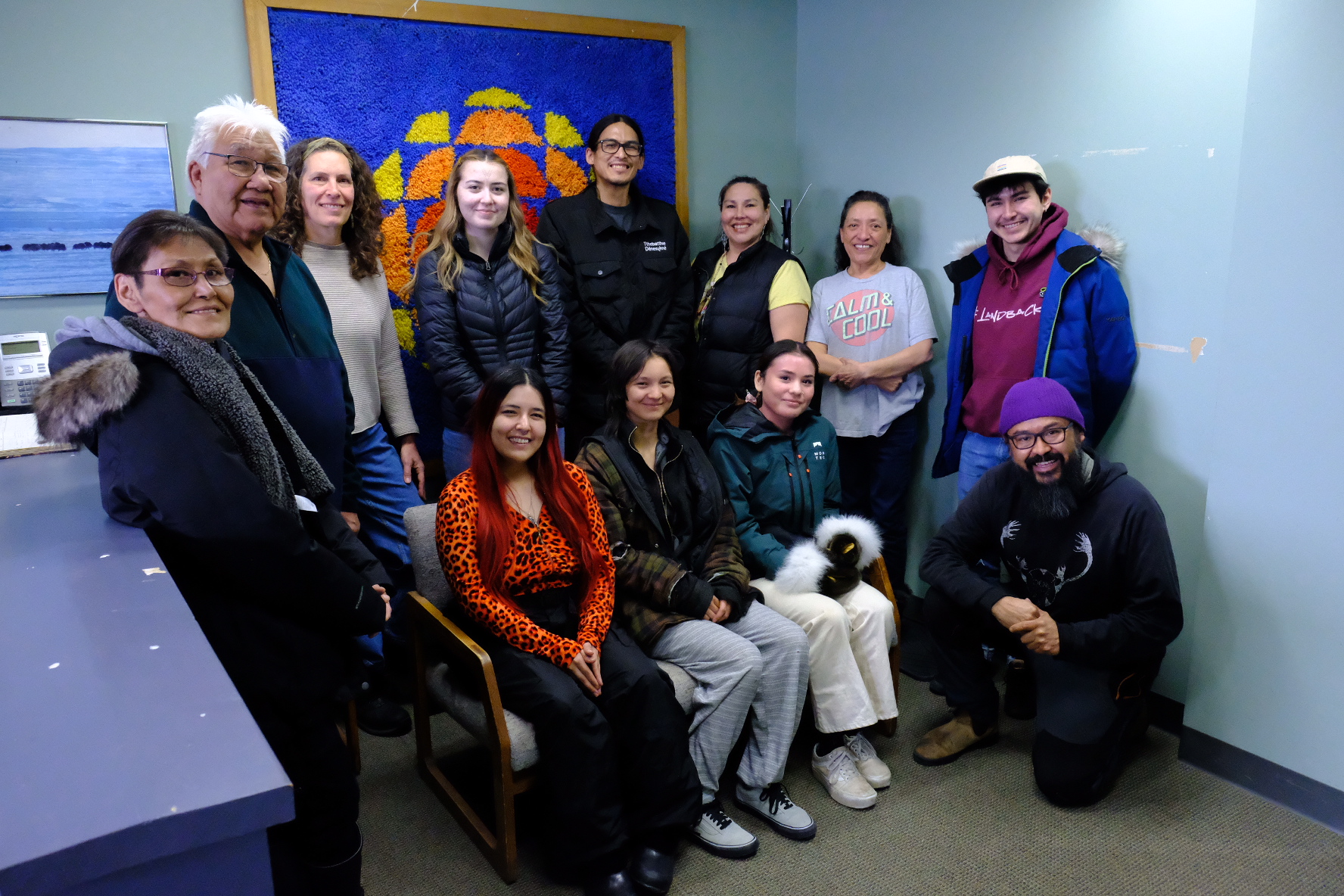In late 2019, a diverse group of Indigenous and Northern media professionals gathered around veteran Northern journalist Sara Minogue’s kitchen table. The group, including notable figures such as Paul Andrew, Louie Goose, and Marie Wilson, confronted two critical questions: where are the Northerners and Indigenous journalists in our newsrooms? And how do we bring them into the industry?
The Northern Journalism Training Initiative (NJTI) was born out of these conversations. The project provides journalism training opportunities to Indigenous and Northern people, and exists to amplify the voices of the North. In 2023, they completed their first successful training program in Inuvik, NT in partnership with Journalists for Human Rights and supported by the Google News Initiative. They joined MakeWay’s Shared Platform the following year.
We spoke with Kaila Jefferd-Moore, NJTI’s Program Director, on the challenges Northern journalists like herself faced in pursuing training. “There aren’t many Northern and Indigenous reporters in reporting pools out there in the field. We have Indigenous language hosts at CBC North and CKLB here in Yellowknife. But for the most part, the representation was lacking,” she explained.
“You can teach someone how to work a camera or hold a mic, but understanding the North’s cultural, political, and geopolitical context takes decades.”
This sentiment emphasises the importance of training programs rooted in the North, where aspiring journalists can learn within their own communities, guided by mentors who share their lived experiences.
Narrative Sovereignty in Place

NJTI’s work is about more than technical skills; it’s about reclaiming narrative sovereignty—a term coined by Indigenous cultural critic Jesse Wente. This concept emphasizes Indigenous control over how their stories are told, challenging a history where national media often misrepresented or sidelined their voices.
Duncan McCue’s “4Ds” theory further highlights this issue, noting that Indigenous people are frequently portrayed in media as drumming, dancing, drinking, or dead — tokenistic or harmful depictions.
“For so long, stories have been told about us without us. You can even look at a simple story like reporting on hand games,” Kaila explains. “From a Western perspective, it’s gambling. But culturally, hand games carry medicine and meaning, given to Dene men to play for a reason.”
By equipping Northern journalists with the tools to tell these nuanced stories, NJTI is fostering a media landscape where Indigenous and northern perspectives and voices are centered in meaningful and transformative way.
“I’m just so proud of folks who finished the pilot program and who go on to use these skills,” Kaila reflected, “That’s confidence they’ll carry with them. The skills to take these complex, convoluted policy papers, for example, and turn them into 500 words that’s accessible to their friends on Facebook. That is true power, that’s media literacy. That’s narrative sovereignty.”
Northern Training vs. Western Training

The Community Journalism Training Program, offers a month-long, hands-on experience grounded in ethical journalism. The pilot program’s workshops—led by Dëneze Nakehk’o and Laurie Sarkadi—provided participants real-world skills in an explorative environment.
Unlike traditional training, this program emphasized active participation over grading, allowing trainees to actively engage with storytelling while rooted in their Northern context.
“I think removing that atmosphere [of grades and western school structure] switches things up and allows people to follow those true curiosities and questions, which is a muscle that we want to train when we’re journalists. We want to remain curious and open minded.”
With participants ages ranging from eighteen to fifty years old, sharing knowledge intergenerationally is an integral part of the program. “We had a great age range of folks. Older generations learn from younger generations just as much as us young folks learn from our elders.” Kaila explains.

What’s Next for NJTI?
This spring, NJTI heads to Hay River, Northwest Territories. Recent floods and fires in the region make climate resilience the program’s central theme. Participants will explore journalism through radio, writing for news, pitching, and visual storytelling.
NJTI alumni are already making waves—continuing personal projects, working at outlets like CBC and CKLB, and producing podcasts for non-profit organizations. NJTI is quickly becoming a key hub for publications to connect with Northern journalists.
“Building and fostering this media ecosystem in the North is very important to us. Making sure people know that there’s opportunities out there. And if there are opportunities, there’s people who want to take them,” said Kaila.

Learn more about NJTI’s work and how you can support! NJTI is part of MakeWay’s Shared Platform, which provides charitable expertise and operational support to a mission-aligned community of environmental and social initiatives, so that they can focus on building strong, vibrant, just communities and a healthier planet.